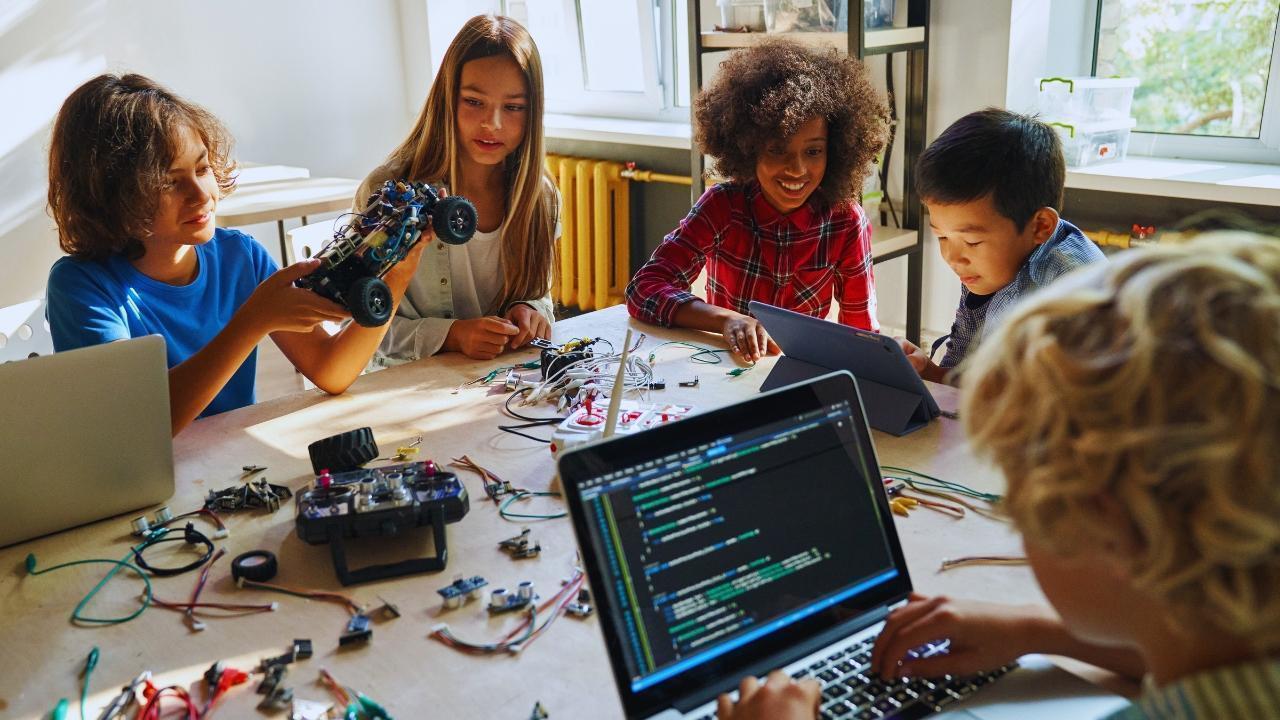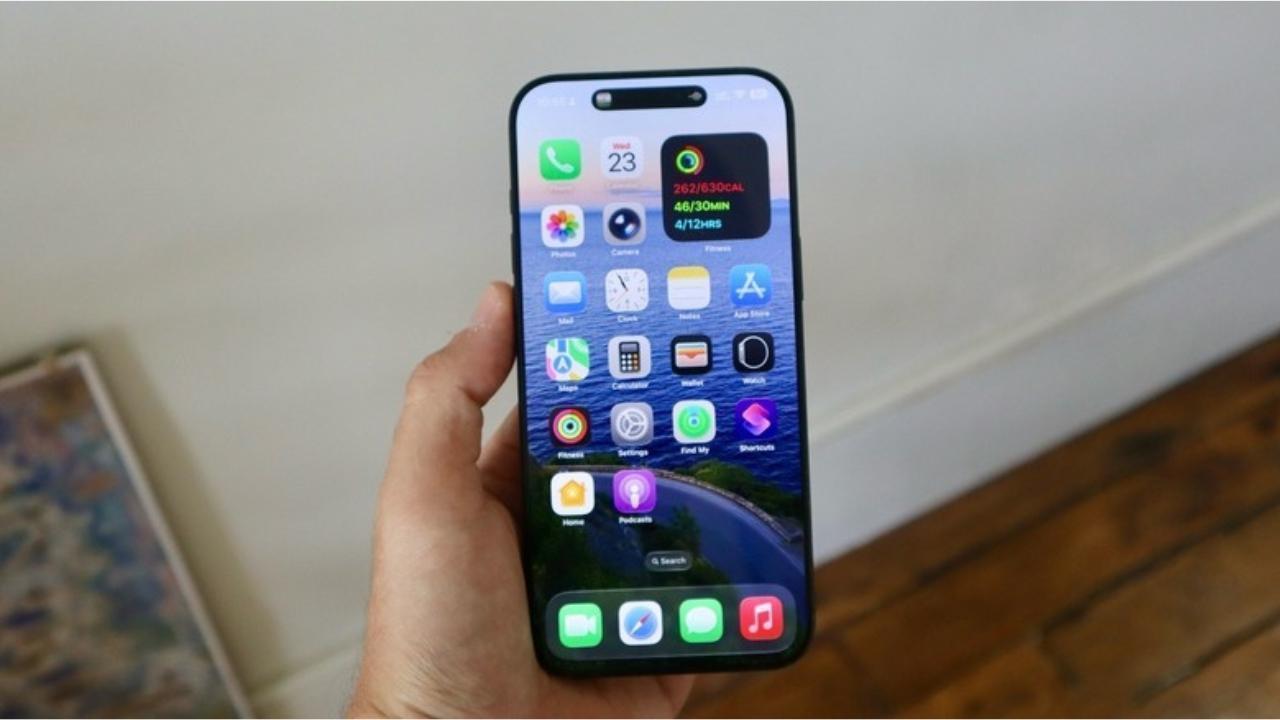You have not yet added any article to your bookmarks!

Join 10k+ people to get notified about new posts, news and tips.
Do not worry we don't spam!

Post by : Anis Farhan
Over the past decade, India’s education system has experienced a profound transformation. While classrooms were once defined by blackboards, chalk, and heavy textbooks, today they are increasingly shaped by artificial intelligence (AI) tools. The shift isn’t simply about adding technology into lesson plans—it is about reimagining the way education is delivered, accessed, and experienced. From serving as virtual tutors for students in small towns to helping policymakers create inclusive education strategies, AI has emerged as a powerful force shaping the country’s learning landscape.
India, with its diverse geography and vast population, faces unique educational challenges. Rural-urban disparities, shortage of skilled teachers, and uneven infrastructure have long plagued the system. But the integration of AI is slowly bridging these gaps, creating opportunities for students who were once left behind. The promise of AI in Indian education lies not just in helping individuals score better in exams but in making knowledge more accessible, more inclusive, and more personalised.
In many urban schools, AI is already embedded in daily teaching practices. Interactive learning platforms use AI algorithms to adjust lesson difficulty based on a student’s performance. If a student struggles with a particular concept in mathematics, the system identifies the gap and provides targeted exercises to reinforce learning. Similarly, in language learning, AI-based pronunciation tools help students refine their speech, often more effectively than one-size-fits-all classroom drills.
For teachers, AI-powered dashboards offer deep insights into classroom performance. Instead of relying solely on test results, educators can now see real-time analytics—how long a student spends on a concept, what types of questions they frequently get wrong, and where they excel. This allows teachers to provide focused attention to students who need it most, making lessons more efficient and personalised.
Even government-backed initiatives are embracing AI tools. The National Education Policy (NEP) 2020 encourages the use of technology to make learning more interactive and inclusive, signalling a future where AI is an everyday classroom companion rather than a novelty.
The real game-changer, however, is how AI is reaching rural and remote areas. In villages where qualified teachers are scarce, AI-powered applications act as virtual instructors. Students can access lessons through smartphones or affordable tablets, learning at their own pace without waiting for a human teacher to be available.
AI translation tools are also breaking down language barriers. In a country with 22 officially recognised languages, a student in Tamil Nadu can learn science in Tamil and then switch to English for competitive exam preparation. Similarly, a learner in a Hindi-speaking region can access materials translated into their mother tongue instantly. This localisation is crucial in keeping students engaged while also preparing them for global opportunities.
Low-cost AI learning platforms are particularly effective in after-school learning. They not only help with exam preparation but also introduce students to critical thinking, problem-solving, and creativity—skills that are often overlooked in traditional rote-learning environments.
In India, competitive exams are a significant milestone for millions of students. AI-powered platforms now offer personalised preparation strategies for exams like IIT-JEE, NEET, and UPSC. These systems assess a student’s strengths and weaknesses, suggest a customised study plan, and adapt the content as the learner progresses.
But AI in Indian education is not limited to school or college students. Professionals seeking upskilling in fields like data science, digital marketing, or design are increasingly turning to AI-driven courses. AI tutors simulate real-world scenarios, allowing learners to apply their knowledge in practical situations rather than merely memorising theories.
For instance, a marketing professional can use AI tools to run simulated campaigns and see how strategies would perform in the real market. This hands-on approach not only enhances skills but also makes learning relevant and engaging.
Contrary to fears that AI will replace human teachers, its most significant role in India is to empower them. Teachers often have to manage large classrooms, leaving little time for one-on-one guidance. AI systems handle routine tasks like grading objective tests, preparing lesson plans, and tracking student progress. This frees up educators to focus on mentorship, creativity, and emotional support—elements that technology cannot replicate.
Moreover, AI-driven teacher training programs provide educators with up-to-date teaching techniques, lesson delivery methods, and subject knowledge. This is especially beneficial in rural areas, where access to professional development opportunities is limited.
While the potential of AI in Indian education is enormous, challenges remain. Internet connectivity in remote areas is still inconsistent, making it difficult for students to fully benefit from online AI platforms. Affordability is another concern—though the cost of devices has fallen, many low-income families still find them beyond reach.
Data privacy and ethical concerns are also emerging. AI tools collect large volumes of personal data, raising questions about how this information is stored, shared, and used. Without strict guidelines, there is a risk of misuse.
Additionally, AI systems must be designed to reflect India’s diverse cultural and linguistic contexts. An algorithm trained solely on English-language content may not adequately serve the majority of students in rural regions.
Recognising the importance of AI in education, the Indian government is actively collaborating with technology companies and edtech startups. Projects under the Ministry of Education aim to create AI-based personalised learning modules for government schools. At the same time, private edtech firms are introducing innovative features like voice-enabled learning for students with limited literacy skills.
International collaborations are also emerging. Global technology giants are working with Indian universities to develop AI research labs and create curricula that prepare students for future job markets.
One of the most heartening developments is AI’s application in special needs education. AI-driven speech recognition tools help children with speech impairments communicate more effectively. Vision-based AI systems assist visually impaired students in reading textbooks using audio output. Similarly, AI applications are being used to detect early signs of learning disabilities, allowing for timely interventions.
These technologies ensure that education is not only more inclusive but also more empowering for differently-abled students.
The long-term promise of AI in Indian education goes beyond improved grades and better test scores—it is about democratising knowledge. By removing geographical, financial, and linguistic barriers, AI has the potential to make quality education a basic right rather than a privilege.
Imagine a scenario where a student in a remote Himalayan village has the same access to expert lectures, global libraries, and skill development tools as a student in Mumbai or Delhi. This vision is no longer a distant dream—it is gradually becoming reality.
The next frontier will likely involve AI-driven adaptive curriculums that evolve with the student, combining academic learning with life skills, creativity, and emotional intelligence. With careful planning and ethical implementation, AI could help India leapfrog traditional education challenges and create a generation of learners who are not just academically proficient but also globally competitive.
AI in Indian education is not about replacing human connection—it’s about enhancing it. By acting as a silent partner to both students and teachers, AI can transform the way learning is perceived and practiced. While challenges like affordability, infrastructure, and data privacy must be addressed, the benefits far outweigh the risks.
The journey from classroom tutors to the democratisation of knowledge is well underway, and India stands at a unique point in history to lead this revolution. As long as technology remains inclusive, culturally sensitive, and ethically governed, AI could well be the catalyst that reshapes the nation’s educational destiny.
The information presented in this article is intended for general informational purposes only. While every effort has been made to ensure the accuracy, timeliness, and reliability of the content, developments may occur after publication that could impact its relevance. Readers are encouraged to verify facts from official and trusted sources before making decisions based on the information provided. The publisher and author accept no responsibility for any loss or inconvenience arising from reliance on the article’s content.










Trump Plans First Meeting of New Peace Board in Washington This February
Former U.S. President Donald Trump is reportedly preparing to convene the inaugural session of a new

Apple’s iOS 26.3 Update Is Here — Why Millions of iPhone Users Should Install It Now
Apple has rolled out iOS 26.3 as a critical update for eligible iPhones, bringing important security

Pam Bondi’s Explosive Epstein Hearing: Four Moments That Defined the Testimony
US Attorney General Pam Bondi faced intense questioning in a House Judiciary Committee hearing that

Epic T20WC Thriller: South Africa Triumphs Over Afghanistan in Double Super Over Clash
An exhilarating account of one of the most dramatic matches in ICC Men’s T20 World Cup 2026 history,

Abhishek Sharma Hospitalised With Stomach Infection, Doubtful for India’s T20 World Cup Match Against Namibia
Indian opening batter Abhishek Sharma has been hospitalised with a stomach infection and is unlikely

Mass Shooting in British Columbia Leaves 10 Dead in One of Canada’s Deadliest Attacks
A tragic mass shooting at a high school and nearby residence in Tumbler Ridge, British Columbia, has